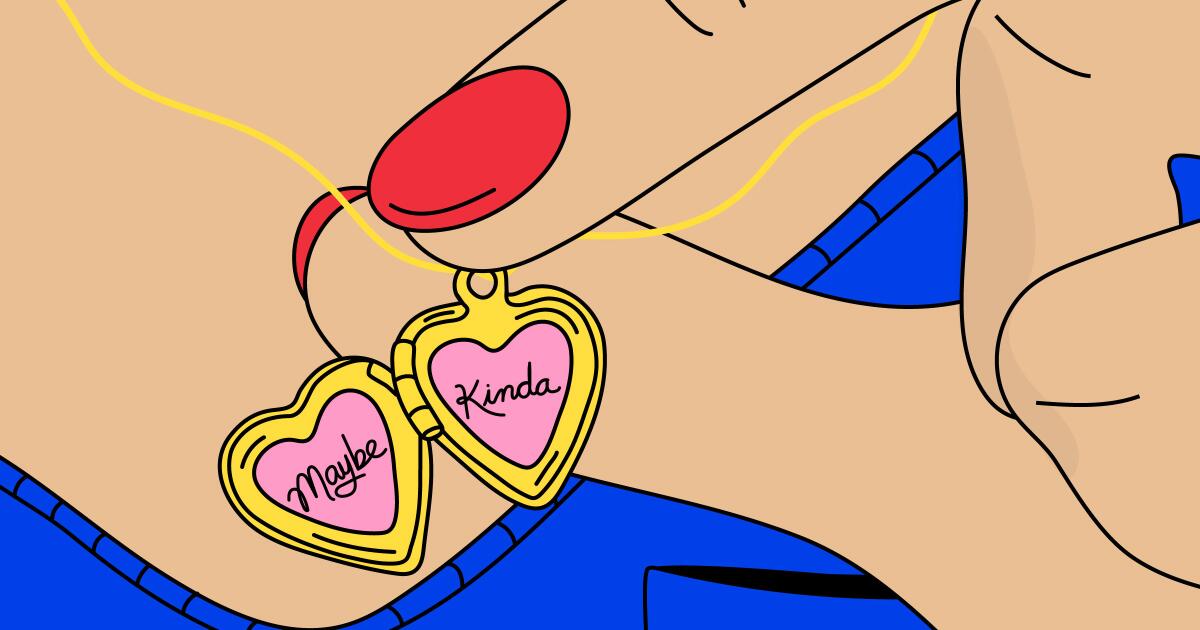Health
The girl who can’t smile: How a rare disorder became a young woman's ‘greatest gift’
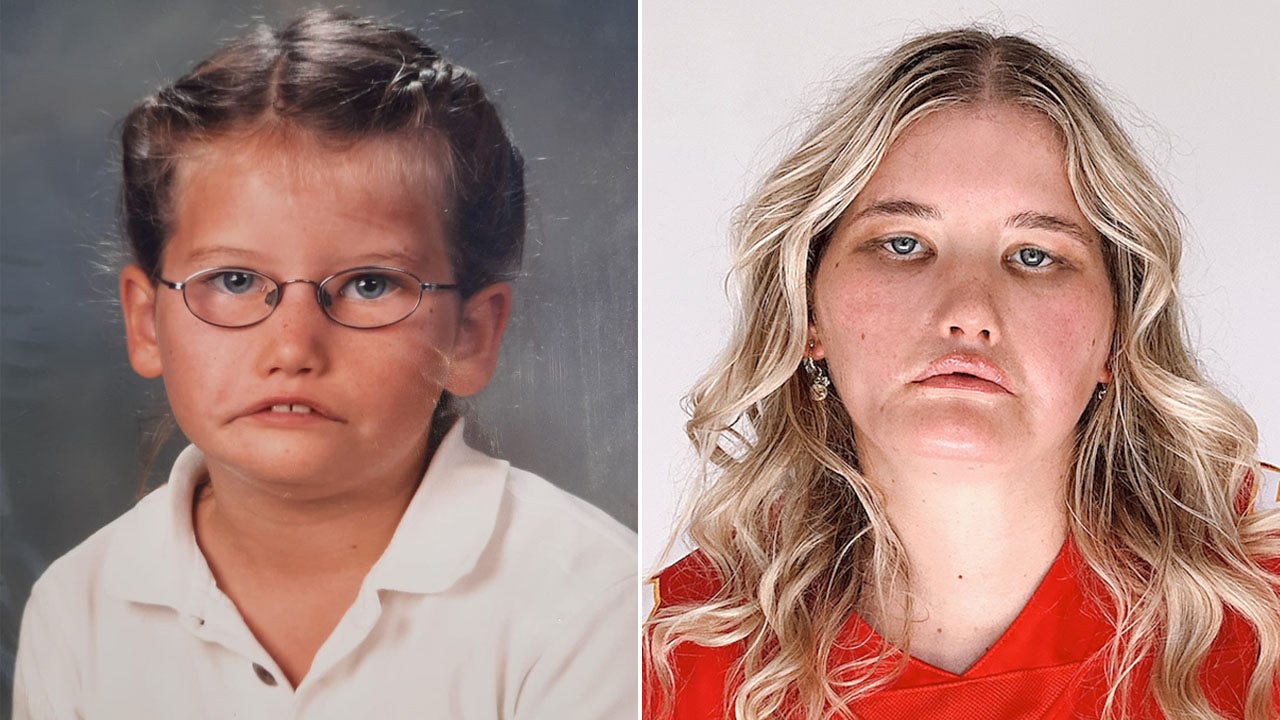
Tayla Clement, 26, was born with a rare disorder that has made it impossible for her to smile — but she says she is grateful for it.
Born and raised in New Zealand, Clement has Moebius syndrome, a neurological disease that affects one child out of every 50,000 to 500,000 born, research shows.
Moebius occurs when a baby’s facial nerves are underdeveloped. The primary effects are facial paralysis and inhibited eye movement, but the condition can also cause difficulty with speech, swallowing and chewing, according to Johns Hopkins.
RARE CONDITION CAUSED PATIENT TO SEE ‘DEMONIC’ FACES, SAYS STUDY ON ‘VISUAL DISORDER’
“The syndrome affects my sixth and seventh cranial nerve, so it’s essentially like facial paralysis,” Clement told Fox News Digital in an interview.
It also means Clement can’t move her eyebrows or upper lip — and can’t shift her eyes from side to side.
Tayla Clement, born and raised in New Zealand, has Moebius syndrome, a neurological disease that affects one child out of every 50,000 to 500,000. (Tayla Clement)
Dr. Juliann Paolicchi, a pediatric neurologist and the director of pediatric epilepsy at Staten Island University Hospital in New York, has treated several babies with Moebius syndrome. (He was not involved in Clement’s care.)
“Infants born with the syndrome may have a lopsided face, may not be able to form a smile, and may have feeding problems early in life,” he told Fox News Digital.
NEW JERSEY TWINS RECEIVE MATCHING HEART SURGERIES AFTER MARFAN SYNDROME DIAGNOSIS: ‘A BETTER LIFE’
They can also experience orthopedic anomalies, such as abnormal development of the fingers and feet.
“Other parts of the face and eyes may be affected, such as a small jaw, cleft palate and smaller-sized eyes,” Paolicchi added.
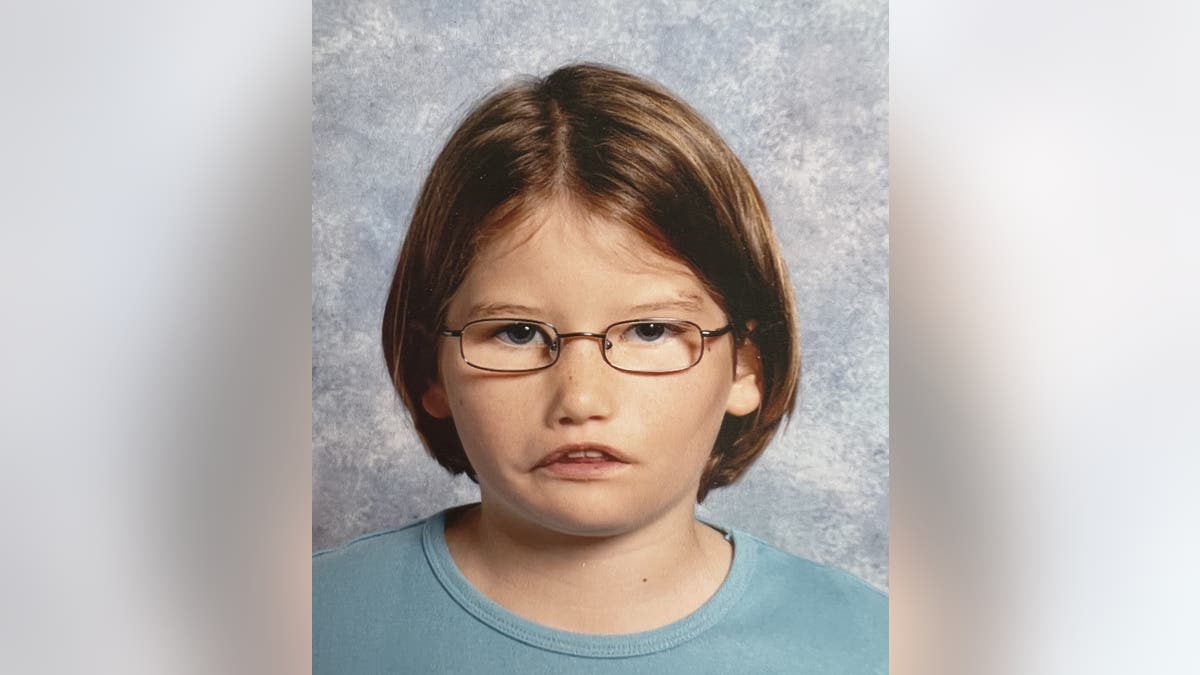
Growing up without the ability to smile brought plenty of challenges for Clement, who said she was bullied for years — “for as long as I can remember,” she told Fox News Digital. (Tayla Clement)
While children with Moebius syndrome do not have problems with intellectual development, social situations can be a challenge due to a decreased ability to demonstrate emotions with the face, Paolicchi said.
“They are often mistaken as being sad or overly serious, when they are simply just not able to smile,” he said.
‘Quite isolating’
Growing up without the ability to smile brought plenty of challenges for Clement, she said.
She was born in 1997, before the advent of social media, so she wasn’t able to connect with others facing the same challenge.
“With the syndrome being super rare and also coming from a small country, it was quite isolating,” she said.
“As an 11-year-old girl, I thought, if I could just smile, I would have friends and wouldn’t get bullied anymore.”
Clement said she was bullied for years, “for as long as I can remember.”
“It started off as verbal bullying — being told that I was ugly or worthless, or being isolated and not having any friends.”
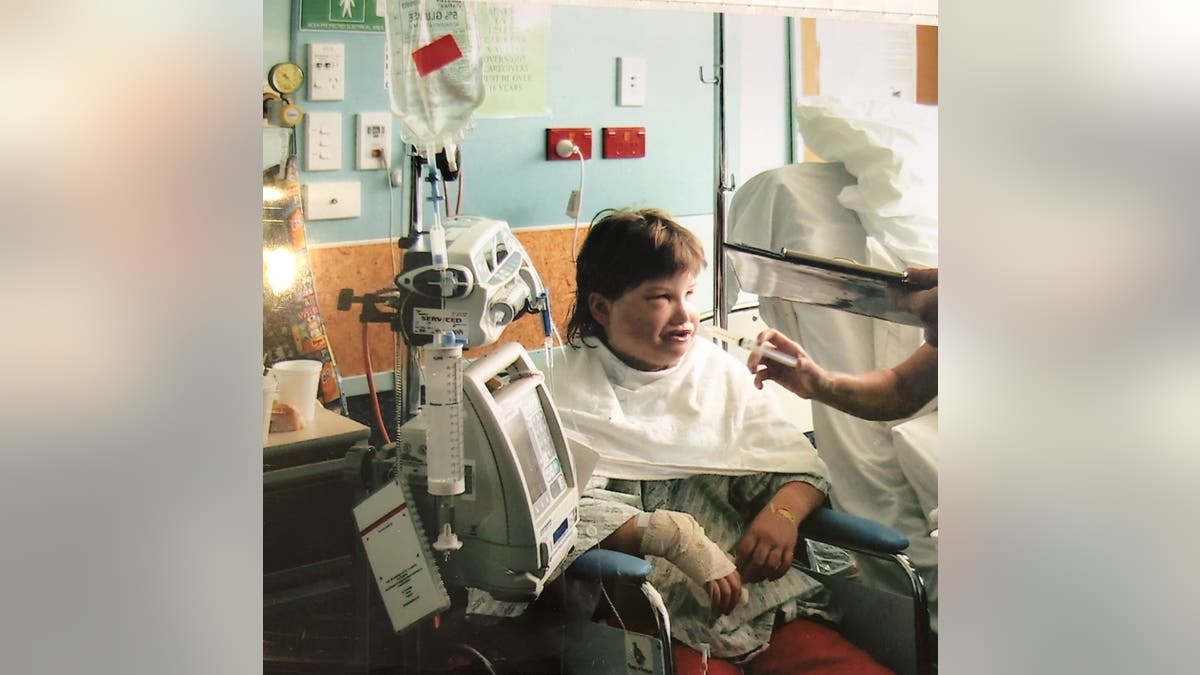
Clement is pictured at 11 years old after undergoing facial surgery, which was ultimately unsuccessful. (Tayla Clement)
Things got worse when Clement was 11, after she had a major operation in an attempt to correct her inability to smile.
During the “invasive” nine-hour surgery, doctors took tissue from her right thigh and inserted it internally into the corners of her mouth and into her temples.
“The idea was that when I would clench down on my jaw, the tissue that was planted would pull the corners of my mouth up to mimic a normal smile,” she recalled to Fox News Digital.
OHIO BOY, 8, PREPARES FOR BLINDNESS: ‘IT’S HEARTBREAKING,’ HIS MOM SAYS
Paolicchi confirmed that corrective surgery is sometimes performed on babies and children with Moebius syndrome.
“This is a complicated and specialized procedure.”
“The procedure, called the ‘smile’ surgery, helps not only appearance, but the ability to smile and to be able to pronounce words more clearly,” he said.
“This procedure does involve transferring portions of the person’s own muscle to the face and connecting it to the working nerves of the face. This is a complicated and specialized procedure and should only be performed by surgeons skilled in the procedure.”
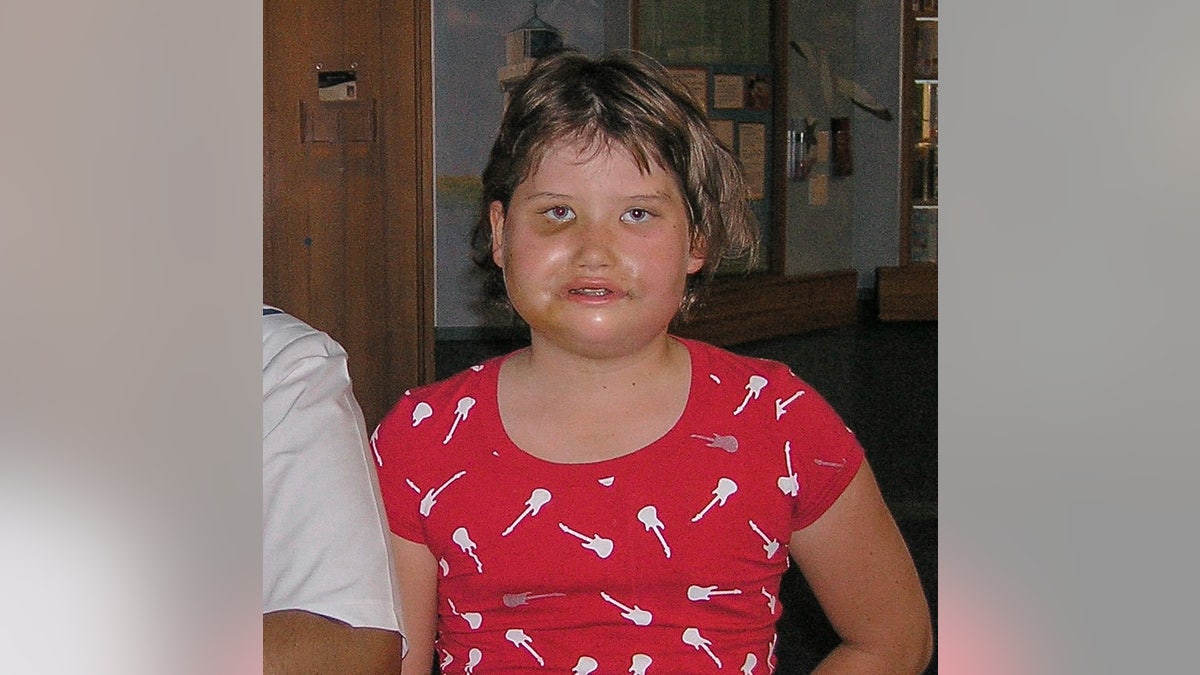
Clement is pictured soon after receiving major surgery at 11 years old. “The procedure, called the ‘smile’ surgery, helps not only appearance, but the ability to smile and to be able to pronounce words more clearly,” a doctor said. (Tayla Clement)
The surgery does come with risks. Clement noted that there was a “very fine line” between tightening the area too much — which would leave her with a permanent smile — and leaving it too loose and not seeing any results at all.
“As an 11-year-old girl, I thought, if I could just smile, I would have friends and wouldn’t get bullied anymore. So I jumped at the opportunity,” she said.
“I just chose to believe in myself — and that I was destined for something bigger.”
The surgery was unsuccessful — leaving Clement scarred and “completely broken,” she said.
“It was such a horrible time for me,” she said. “But looking back on it now, I couldn’t be more grateful for the surgery being unsuccessful. I think it was all supposed to happen that way.”
Reaching a breaking point
After the operation, the bullying got worse. In addition to calling Clement names, students pushed her into lockers, ripped off her backpack and threw her items on the floor, she said.
“That came with a lot of mental health challenges,” she said. “For much of my childhood, I was quite depressed and anxious.”
While Clement’s family provided her with plenty of love and support — “they’re the reason why I’m still here,” she said — they didn’t know how bad things really were.
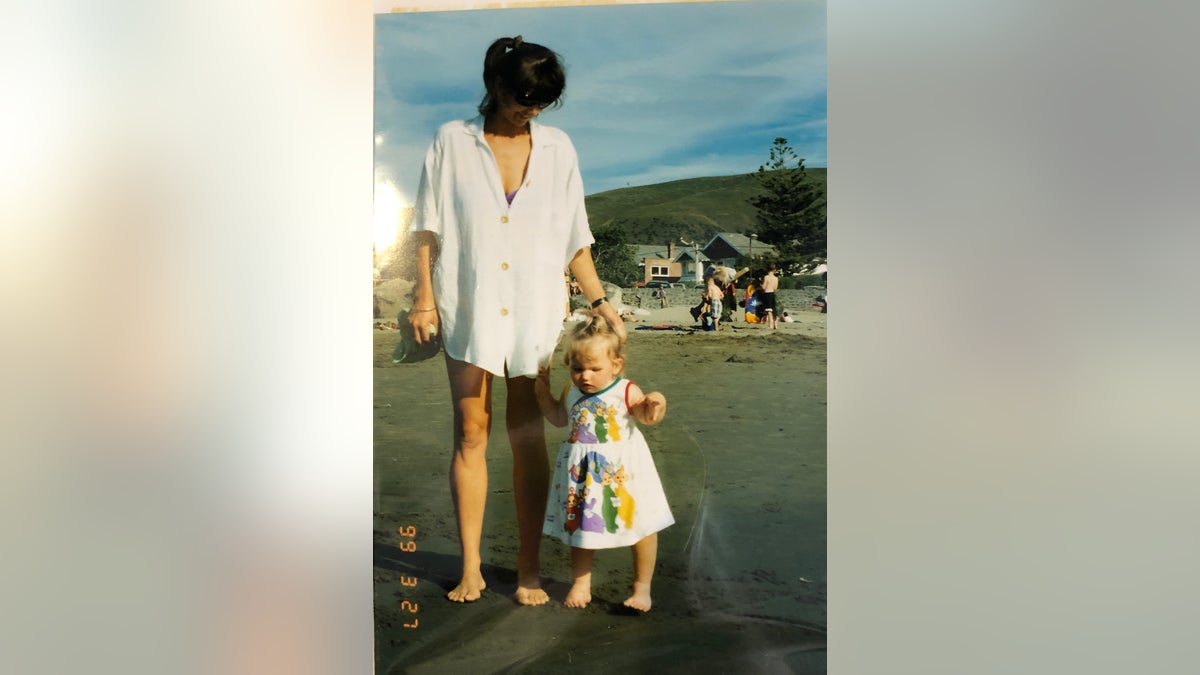
While Clement’s family provided her with plenty of love and support — “they’re the reason why I’m still here,” she said — they didn’t know how bad things really were. Clement is pictured here with her mother. (Tayla Clement)
“When I was younger, I never told my parents about what I was going through with the bullying,” Clement said.
“There are still some things that I probably won’t ever tell them about, because I don’t want them to feel sad or upset,” she went on. “I know they would feel like they could have done something, but there’s nothing they could have done.”
In 2015, during her senior year of high school, Clement began collapsing and experiencing seizures.

During her senior year of high school, Clement began collapsing and experiencing seizures. The next year, she was diagnosed with extreme clinical depression and anxiety, along with post-traumatic stress disorder. (Tayla Clement)
The next year, at 18, she was diagnosed with extreme clinical depression and anxiety, along with post-traumatic stress disorder, she said.
“Because I had been through so much stress and trauma, my brain was kind of shutting down,” she said. “The seizures were like a physical form of how much I was struggling internally.”
OHIO MOTHER HOPES FOR A CURE TO SAVE HER SON, 8, FROM RARE, FATAL DISEASE: ‘GUT-WRENCHING’
At the time, doctors and specialists told Clement that she would have seizures for the rest of her life, and that she’d always be dependent on other people.
But she was determined to prove them wrong.
Intensive therapy played a big part in her recovery, she said.
After her diagnosis, Clement underwent intensive therapy, which she said played a big part in her recovery.
She found herself at a “crossroads,” she said, where she had to choose between working on her mental and physical health and putting herself into a better space, or continuing to feel “unhappy and miserable.”
Clement chose the first path — although it wasn’t easy.
“There were days when I just wanted to give up. I didn’t want to do life anymore because it was so hard,” she said.

In her role as a sports content creator and host, Clement has leveraged her love of rugby into a “new lease on life — a real purpose,” she said.
“I learned quite quickly that the only person who can truly help you is yourself.”
Clement “worked tirelessly,” continuing with therapy, reading many self-help books and adopting healthy daily routines.
“I just chose to believe in myself — and that I was destined for something bigger,” she said.
Saved by a new passion
As it turned out, the “something bigger” was a new career in sports.
Clement had always been a big sports fan — with a particular love of rugby, which is very popular in New Zealand.
In March 2023, she started creating social media content around rugby and motorsports. The Chiefs, a professional rugby union team in New Zealand, gave Clement her first opportunity.

Since entering the rugby scene, Clement has worked to “bring inclusion” into the sport, with a goal of “inspiring, empowering and advocating for positive change.” (Tayla Clement)
This year, Clement interviewed players from four of the Super Rugby Pacific teams, including some of the best players in the world, such as two-time World Rugby Player of the Year Beauden Barrett.
In her role as a sports content creator and host, Clement said she’s leveraged her love of rugby into a “new lease on life — a real purpose.”
Since entering the rugby scene, she has worked to “bring inclusion” into the sport, with a goal of “inspiring, empowering and advocating for positive change.”
PENNSYLVANIA PARENTS HONOR THEIR DAUGHTER WHO DIED OF A RARE GENETIC DISEASE: ‘SWEETEST GIRL IN THE WORLD’
Clement is also aiming, she said, to help other sports organizations incorporate more inclusion into their teams.
“I’ve known from a young age that I’m meant to help people,” Clement told Fox News Digital. “Using my story and my voice to advocate for others and make the sports arena more inclusive makes me so happy. And I’m just getting started.”
‘Grateful for all of it’
It has been three years since Clement experienced a collapse or seizure, she told Fox News Digital.
“I’m living a life I truly never could have dreamed of,” she said. “I’m doing a job that I absolutely love, and I just did not think this level of happiness and contentment was accessible or attainable for me … It’s been a long journey, and I’m very grateful for all of it.”

This year, Clement has interviewed players from four of the Super Rugby Pacific teams, including some of the best players in the world. (Tayla Clement)
Clement has also used her platform to connect with other people who have syndromes or disabilities. Her mission is to educate others about how to treat younger people who feel like they are “not seen or heard” — whether that’s in the sports arena or everyday life.
CLICK HERE TO SIGN UP FOR OUR HEALTH NEWSLETTER
“I really needed someone like my present self when I was younger,” she said. “It’s a full-circle moment to be there for other people now.”
Despite the “dark times” she’s experienced, Clement said that being born with Moebius syndrome and not being able to smile has turned out to be “the greatest gift.”

Clement said she aims to help other sports organizations incorporate more inclusion into their teams. “I’ve known from a young age that I’m meant to help people,” she said. (Tayla Clement)
“We’re all born different and unique,” she said. “It has given me the opportunity to use my voice and to be proud of my differences.”
“Being alive is such a gift, and it’s a special thing to be born with Moebius syndrome. It doesn’t make us any less worthy, beautiful or amazing.”
Even though she can’t smile in the traditional sense, Clement says she has her own version.
“I think everyone’s smile is different, just like everyone else is different,” she said.
“I just smile in my own way.”
For more Health articles, visit www.foxnews.com/health.

Health
Cancer trends revealed, including most common types of the disease and biggest risk factors
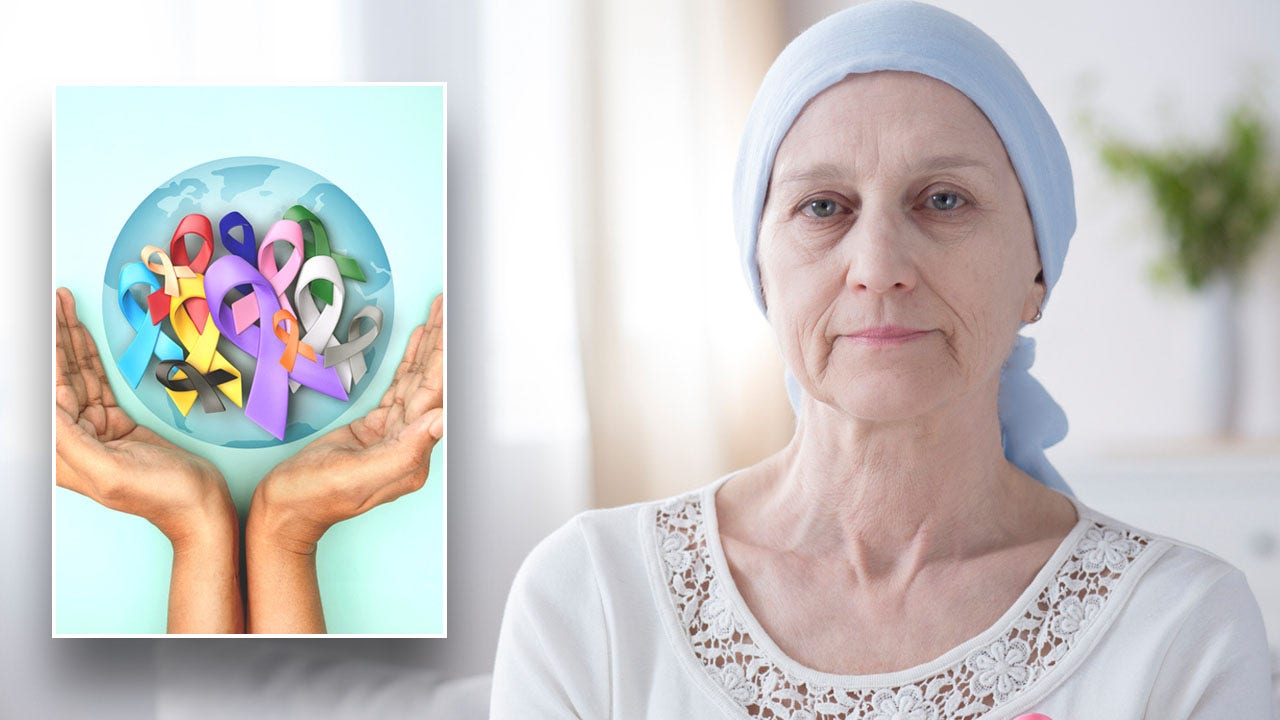
Almost 40% of Americans will receive a cancer diagnosis at some point in their lifetime — but certain types are more common than others, statistics show.
USAFacts, a Washington-based nonprofit that compiles government data and reports on it, took a deep dive into the latest cancer data to identify trends — and shared the results with Fox News Digital.
Of the 1.96 million new cancer cases in 2023, half were made up of five types: breast cancer (15%), prostate cancer (15%), lung and bronchus cancer (12%), colorectal cancers (8%) and all other types (50%).
CANCER CAUSES: THESE 10 HIDDEN CARCINOGENS CAN RAISE THE RISK, ACCORDING TO AN ONCOLOGY EXPERT
Among the 609,820 cancer deaths in 2023, nearly half were made up of lung and bronchus cancer (21%), colorectal cancers (9%), pancreatic cancer (8%) and breast cancer (7%).
The remaining 55% of deaths were attributed to other cancers.
Almost 40% of Americans will receive a cancer diagnosis at some point in their lifetime — but certain types are more common than others. USAFacts, a Washington-based nonprofit that compiles government data and reports on it, studied the numbers and shared trends with Fox News Digital. (iStock)
While cancer cases have risen overall due to a growing population, the share of people getting diagnosed and dying from the disease has decreased.
“Between 2000 and 2019, the incidence rate — or the rate of new cancer cases per 100,000 people — declined by 5.4%, while the annual mortality rate fell by more than 26%,” the report stated.
The share of people getting diagnosed and dying from cancer has actually decreased.
“This suggests improvements in cancer prevention, detection and treatment,” Dr. Brett Osborn, a Florida neurologist and longevity expert, told Fox News Digital in a statement.
Osborn was not involved in the report, but commented on the findings.
Here are five standout observations.
1. Gender-specific risk
As of 2019, men were about 15.4% more likely to receive a new cancer diagnosis and 37.5% more likely to die from the disease than women.
That gap has narrowed since 2000, however, when the cancer incidence rate was more than 37% higher for men.
FOODS TO EAT, AND NOT EAT, TO PREVENT CANCER, ACCORDING TO A DOCTOR AND NUTRITIONIST
For men, the most common cancers are prostate, lung and colorectal cancers, the USAFacts report stated.
Those types made up 50.8% of new cancer cases and 45.9% of cancer deaths in 2023 among males.
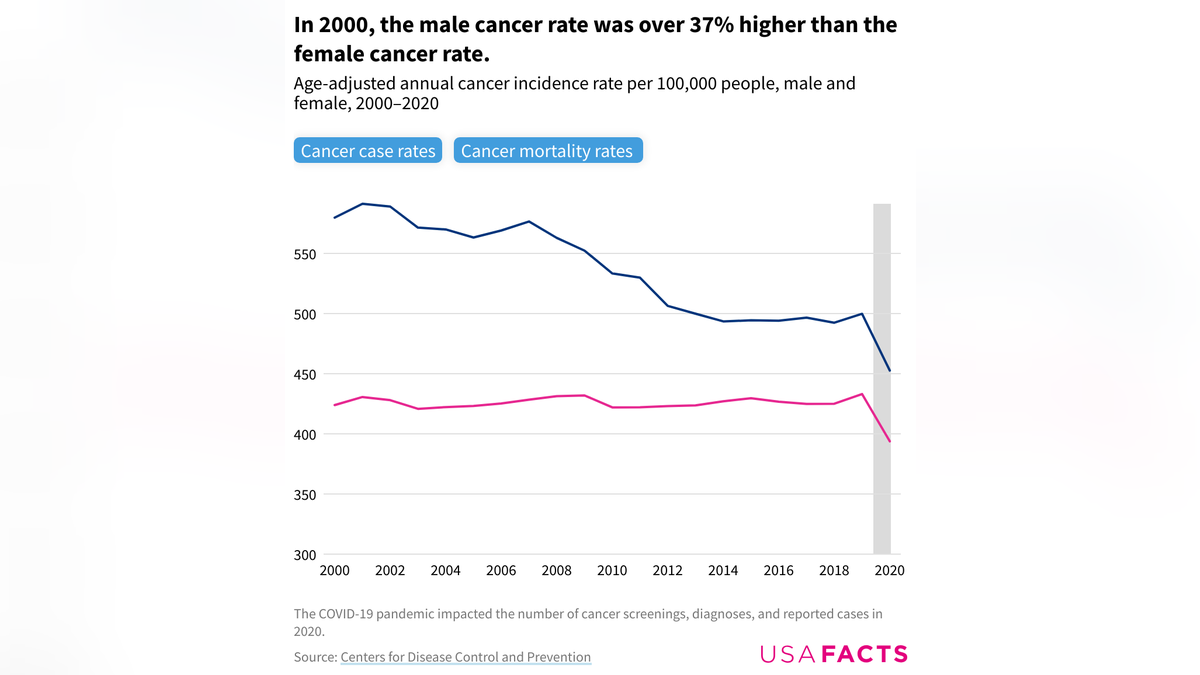
As of 2019, men were about 15.4% more likely to receive a new cancer diagnosis and 37.5% more likely to die from the disease than women. (Centers for Disease Control and Prevention )
Among women, the most prevalent types are breast cancer, lung cancer and colorectal cancer.
Those three types comprised 54.6% of new cancer cases and 50.1% of cancer deaths in 2023 for females.
2. Cancer rates across ethnic groups
White Americans have the highest rate of new cancer diagnoses, followed by non-Hispanic Black Americans, the report stated.
Among cancer deaths, however, non-Hispanic Black Americans are at the highest risk.
SOME BREAST CANCER PATIENTS COULD BE AT RISK OF ANOTHER TYPE OF CANCER, STUDY REVEALS
Non-Hispanic Asian/Pacific Islander Americans have the lowest risk of diagnosis and mortality.
Overall cancer incidence rates have dropped between 2000 and 2019 for every group except American Indian/Alaska Native people, who experienced a nearly 35% increase in diagnoses.
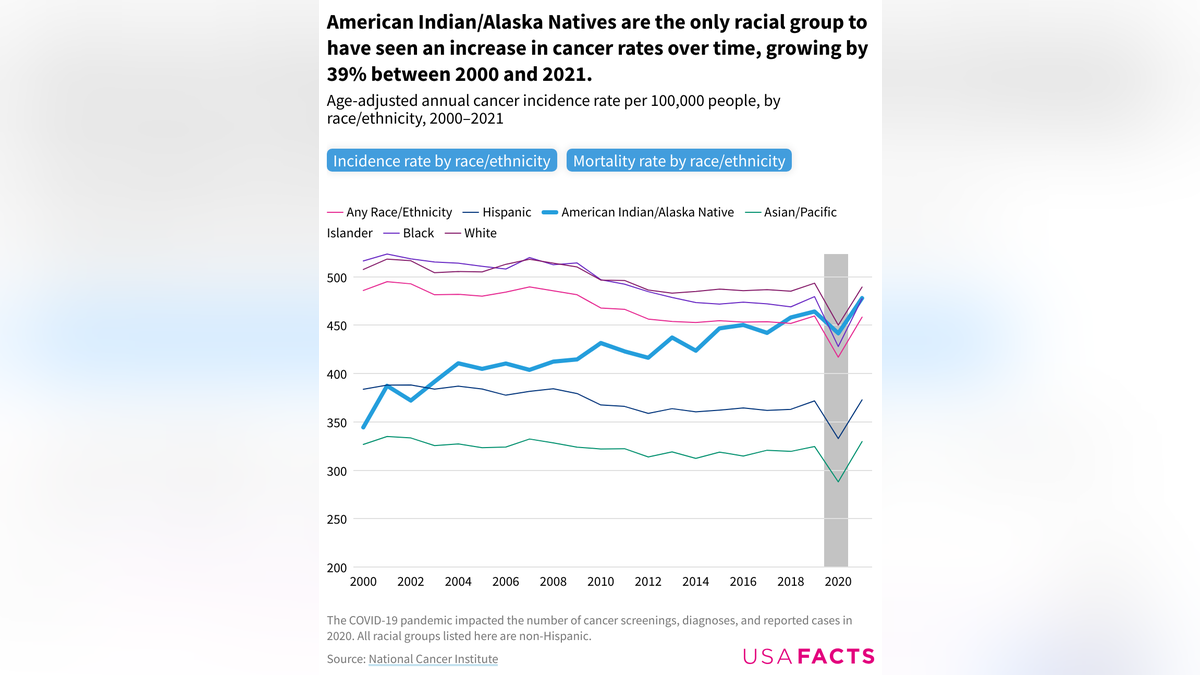
White Americans have the highest rate of new cancer diagnoses, followed by non-Hispanic Black Americans, the report stated. (National Cancer Institute)
“While the reason behind these disparities is hard to pin down, contributing factors include access to health care, environmental conditions, lifestyle behaviors and genetics,” the report states.
3. Cancer survival rates
The five-year cancer survival rate has risen, going from 63.5% in 2000 to 68.4% in 2015 — and is expected to continue its upward trend.
“This improvement is credited to better prevention, early detection and advancements in treatment,” according to Osborn.
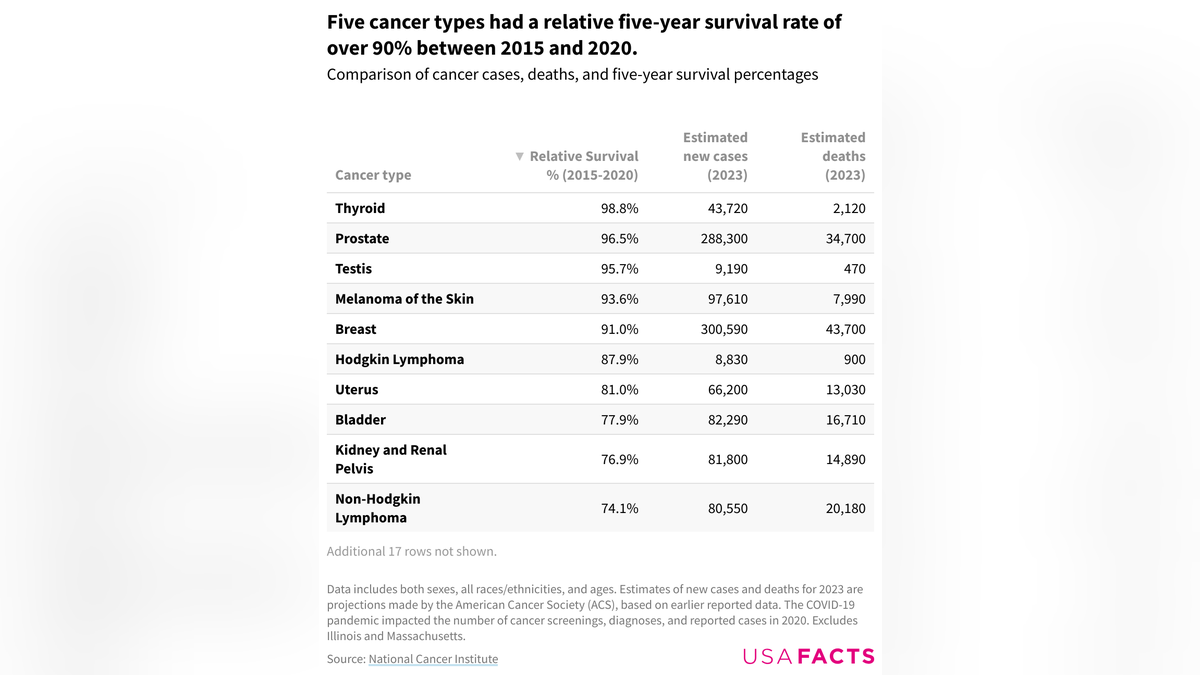
The five-year cancer survival rate has risen, going from 63.5% in 2000 to 68.4% in 2015, and is expected to continue its upward trend. (National Cancer Institute)
Survival rates vary by cancer type.
The cancers with the highest five-year survival rate are thyroid (98.8%), prostate cancer (96.5%), testicular cancer (95.7%), skin cancer (93.6%) and breast cancer (91.0%).
CANCER RATES RISING IN YOUNG PEOPLE DUE TO ‘ACCELERATED AGING,’ NEW STUDY FINDS: ‘HIGHLY TROUBLING’
“It should be noted that estimated cancer deaths in 2023 do not reflect the five-year survival rate between 2015 and 2020, as deaths in 2023 may result from cancer cases diagnosed prior to the five-year window,” the report stated.
4. Average age of cancer diagnosis
Age is the most prevalent risk factor for a cancer diagnosis, according to the report.
Diagnosis rates rise steadily for each decade of life.
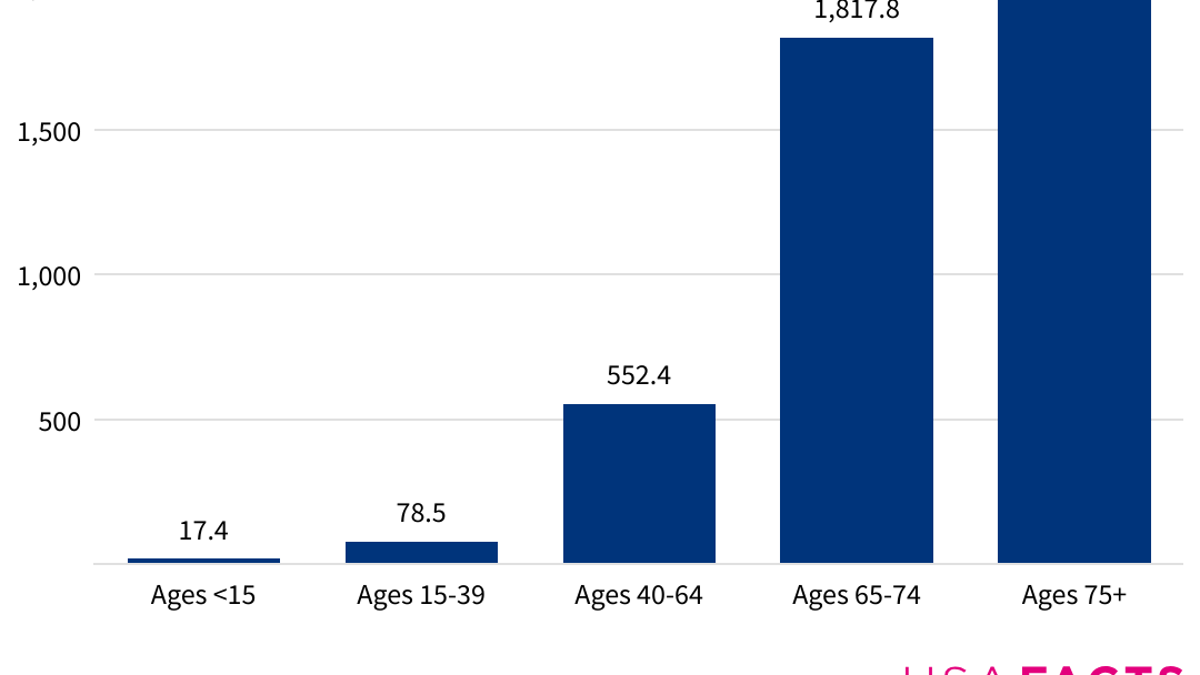
Age is the most prevalent risk factor for a cancer diagnosis, according to the new report. (National Cancer Institute)
The average age of diagnosis is 66 and the average age of death is 72, according to data gathered by the National Cancer Institute (NCI) between 2016 and 2020.
The disease can occur at any age, however — which is why experts recommend early screenings to reduce mortality rates.
5. Importance of guarding against ‘complacency’
Despite the improvements in cancer incidence and mortality rates, Osborn warned that Americans “should not be lulled into complacency.”
CLICK HERE TO SIGN UP FOR OUR HEALTH NEWSLETTER
“According to 2024 data from the American Cancer Society, the incidence of six of the most common cancers – namely those related to excess body weight, such as endometrial, liver, kidney, pancreas, colorectal and breast – are on the rise and may temper the declining mortality rate in the future,” he warned.
Rising obesity rates in the U.S. are a direct cancer driver, Osborn indicated.
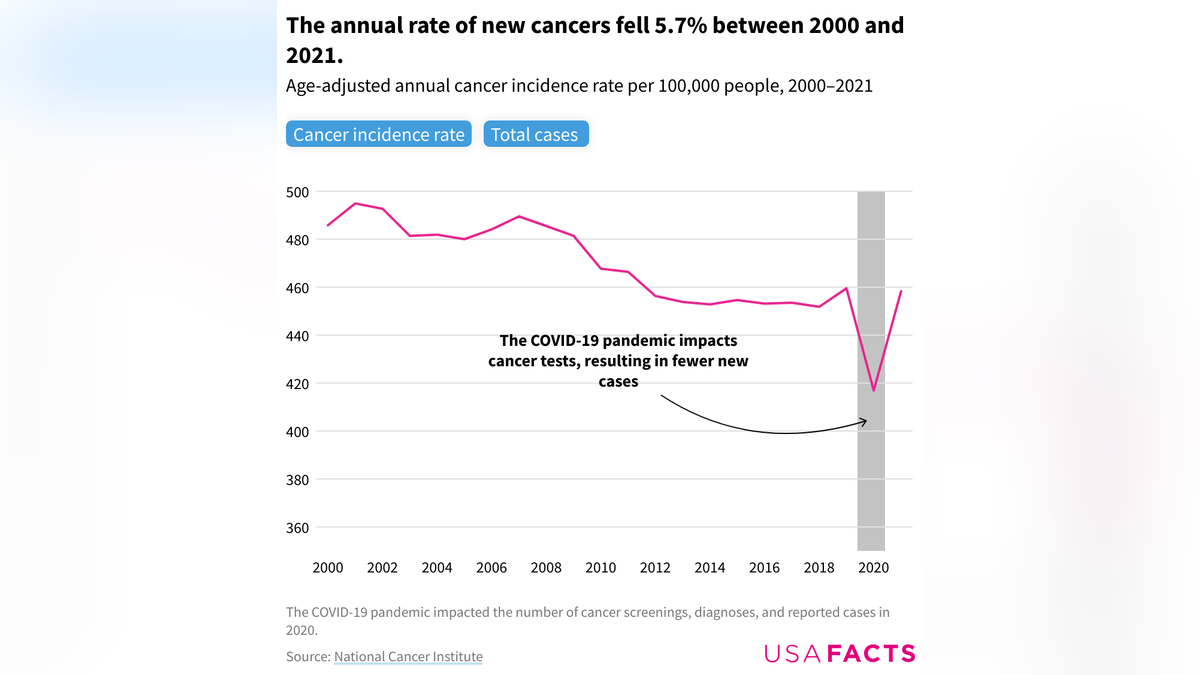
While cancer cases have risen overall due to a growing population, the share of people getting diagnosed and dying from the disease has decreased. (National Cancer Institute)
“It is estimated that more than two in five adults (42.4%) have obesity – a gateway disease to cancer — according to recent data from the National Institute of Diabetes and Digestive and Kidney Diseases,” said Osborn.
“One can only hope that we are not headed in the wrong direction.”
“Unless the tide is turned and the obesity epidemic is addressed, the observed reduction in the annual rate of new cancers and associated mortality will slow and potentially be extinguished,” he continued.
“One can only hope that we are not headed in the wrong direction.”
USAFacts compiled its report using data from the NCI, the U.S. Centers for Disease Control and Prevention (CDC) and the National Center for Health Statistics (NCHS).
For more Health articles, visit www.foxnews.com/health.
Health
AI could predict whether cancer treatments will work, experts say: ‘Exciting time in medicine'

A chemotherapy alternative called immunotherapy is showing promise in treating cancer — and a new artificial intelligence tool could help ensure that patients have the best possible experience.
Immunotherapy, first approved in 2011, uses the cancer patient’s own immune system to target and fight cancer.
While it doesn’t work for everyone, for the 15% to 20% who do see results, it can be life-saving.
WHAT IS ARTIFICIAL INTELLIGENCE (AI)?
Like any medication, immunotherapy has the potential for adverse side effects — which can be severe for some.
Studies show that some 10% to 15% of patients develop “significant toxicities.”
A chemotherapy alternative called immunotherapy is showing promise in treating cancer — and a new artificial intelligence tool could help ensure that patients have the best possible experience. (iStock)
Headquartered in Chicago, GE HealthCare — working in tandem with Vanderbilt University Medical Center (VUMC) in Nashville, Tennessee — has created an AI model that’s designed to help remove some of the uncertainties surrounding immunotherapy.
Over the five years it’s been in development, the AI model was trained on thousands of patients’ electronic health records (EHRs) to recognize patterns in how they responded to immunotherapy, focusing on safety and effectiveness.
AI MODEL COULD HELP PREDICT LUNG CANCER RISKS IN NON-SMOKERS, STUDY FINDS: ‘SIGNIFICANT ADVANCEMENT’
“The model predicts which patients are likely to derive the benefit from immunotherapy versus those patients who may not,” said Jan Wolber, global digital product leader at GE HealthCare’s pharmaceutical diagnostics segment, in an interview with Fox News Digital.
“It also predicts which patients have a likelihood of developing one or more significant toxicities.”
When pulling data from the patient’s health record, the model looks at demographic information, preexisting diagnoses, lifestyle habits (such as smoking), medication history and more.
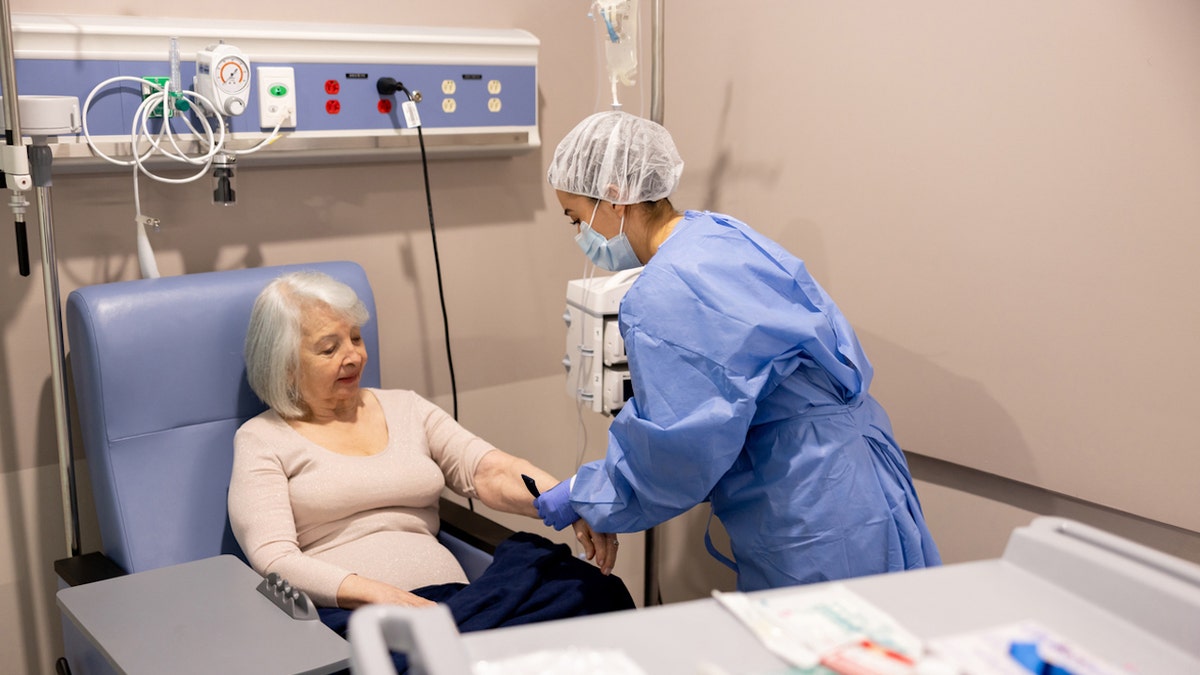
Immunotherapy, which was first approved in 2011, uses the cancer patient’s immune system to target and fight cancer. (iStock)
“All of these data are already being collected by the patient’s oncologist, or they’re filling out a form in the waiting room ahead of time,” said Travis Osterman, a medical oncologist and associate chief medical information officer at Vanderbilt University Medical Center, in an interview with Fox News Digital.
(Osterman is working with Wolber on the development of the AI model.)
BREAST CANCER BREAKTHROUGH: AI PREDICTS A THIRD OF CASES PRIOR TO DIAGNOSIS IN MAMMOGRAPHY STUDY
“We’re not asking for additional blood samples or complex imaging. These are all data points that we’re already collecting — vital signs, diagnoses, lab values, those sorts of things.”
In a study, the AI model showed 70% to 80% accuracy in predicting patients’ responses to immunotherapies, according to an article published in the Journal of Clinical Oncology Clinical Cancer Informatics.
“While the models are not perfect, this is actually a very good result,” Wolber said. “We can implement those models with very little additional effort because there are no additional measurements required in the clinic.”
‘Natural progression’
This type of technology is “a natural progression of what we’ve been doing in medicine for a very long time,” Osterman said.
“The only difference is, instead of surveying patients, we’re taking the entirety of the medical record and looking for risk factors that contribute to an outcome,” he said in an interview with Fox News Digital.
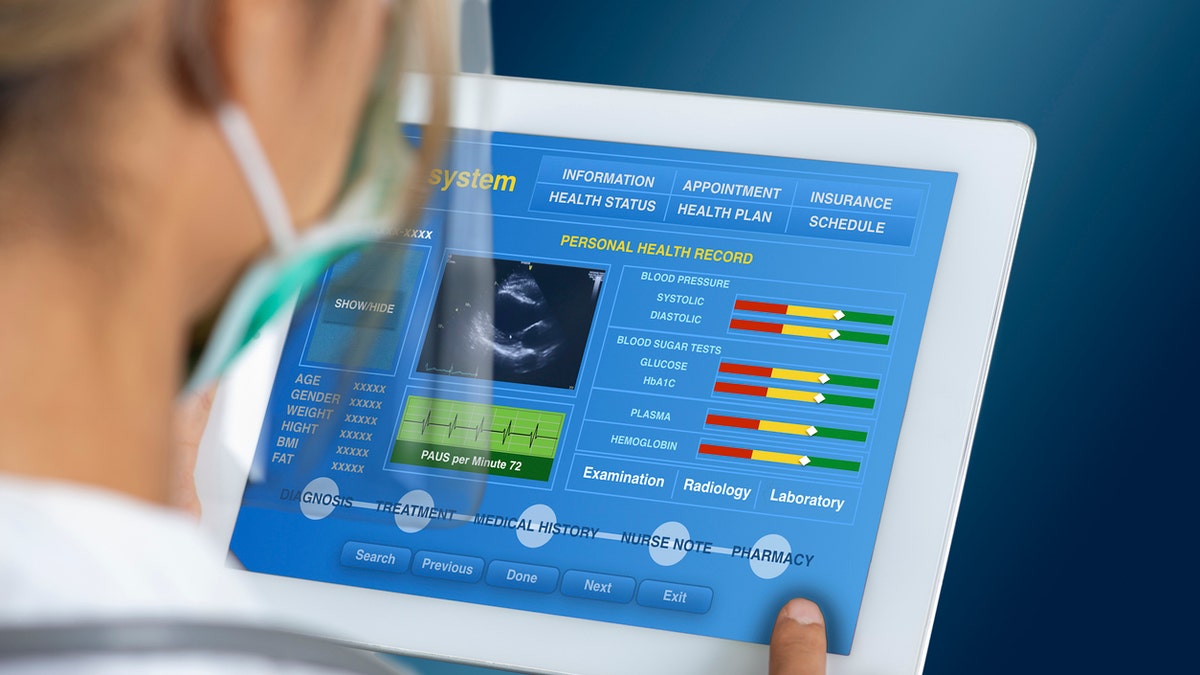
The AI model was trained on thousands of patients’ electronic health records to recognize patterns in how they responded to immunotherapy, focusing on safety and effectiveness. (iStock)
With immunotherapy, there is generally a lower response rate than with chemotherapy, Osterman noted — but some patients have “incredible responses” and ultimately become cancer-free.
“I would be horrified to know that one of my patients that I didn’t give immunotherapy to could have been one of the tremendous responders,” he told Fox News Digital.
Conversely, Osterman noted that in rare cases, immunotherapy can have some serious side effects.
“I would be horrified to know that one of my patients that I didn’t give immunotherapy to could have been one of the tremendous responders.”
“I would say about half of patients don’t have any side effects, but for those who do, some of them are really life-altering,” he said.
“We don’t want to miss anyone, but we also don’t want to harm anyone.”
At the core of the AI project, Osterman said, is the ability to “put all the information into the exam room,” so the oncologist can counsel the patient about the risks and benefits of this particular therapy and make the best, most informed decision about their care.
Combining technology and human expertise
Dr. Marc Siegel, clinical professor of medicine at NYU Langone Medical Center and a Fox News medical contributor, was not involved in the AI model’s development but commented on its potential.
“AI models are emerging that are helping to manage responses to cancer treatments,” he told Fox News Digital.

Dr. Marc Siegel, clinical professor of medicine at NYU Langone Medical Center and a Fox News medical contributor, was not involved in the AI model’s development but weighed in on its potential. “AI models are emerging that are helping to manage responses to cancer treatments,” he said. (Dr. Marc Siegel)
“These can allow for more treatment options and be more predictive of outcome.”
AI models like this one are an example of “the essential future of personalized medicine,” Siegel said, “where each patient is approached differently and their cancer is analyzed and treated with precision using genetic and protein analysis.”
As long as physicians and scientists remain in charge — “not a computer or robot” — Siegel said that “there is no downside.”
Potential limitations
The AI model does carry some degree of limitations, the experts acknowledged.
“The models obviously do not return 100% accuracy,” Wolber told Fox News Digital. “So there are some so-called false positives or false negatives.”
NEW AI ‘CANCER CHATBOT’ PROVIDES PATIENTS AND FAMILIES WITH 24/7 SUPPORT: ‘EMPATHETIC APPROACH’
The tool is not a “black box” that will provide a surefire answer, he noted. Rather, it’s a tool that provides data points to the clinician and informs them as they make patient management decisions.
Osterman pointed out that the AI model uses a “relatively small dataset.”
“We would love to be able to refine our predictions by learning on bigger data sets,” he said.

The tool is not a “black box” that will provide a surefire answer, one of the researchers said; rather, it’s a tool that provides data points to clinicians and informs them as they make patient management decisions. (iStock)
The team is currently looking for partnerships that will enable them to test the AI model in new settings and achieve even higher accuracy in its predictions.
Another challenge, Osterman said, is the need to integrate these AI recommendations into the workflow.
“This is pretty new for us as a health care community, and I think we’re all going to be wrestling with that question,” he said.
CLICK HERE TO SIGN UP FOR OUR HEALTH NEWSLETTER
Looking ahead, once the AI model has achieved the necessary regulatory approvals, GE HealthCare plans to make the technology available for widespread use by clinicians — perhaps even expanding to other care areas, such as neurology or cardiology.
There is also the potential to incorporate it into drug development.
“We don’t want to miss anyone, but we also don’t want to harm anyone.”
“One of the things that drug makers struggle with is that some of the agents that may be really useful for some patients could be really toxic for others,” Osterman said.
“If they were able to pick which patients could go into a trial and exclude patients with the highest risk of toxicity, that could mean the difference between that drug being made available or not.”
He added, “If this means that we’re able to help tailor that precision risk to patients, I’m in favor of that.”
Ultimately, Osterman said, “it’s a really exciting time to be in medicine … I think we’re going to look back and regard this as the golden age of AI recommendations. I think they’re probably here to stay.”
For more Health articles, visit www.foxnews/health.
Health
Health weekend roundup: Bird flu, stroke risks, a mother's heartbreak and more
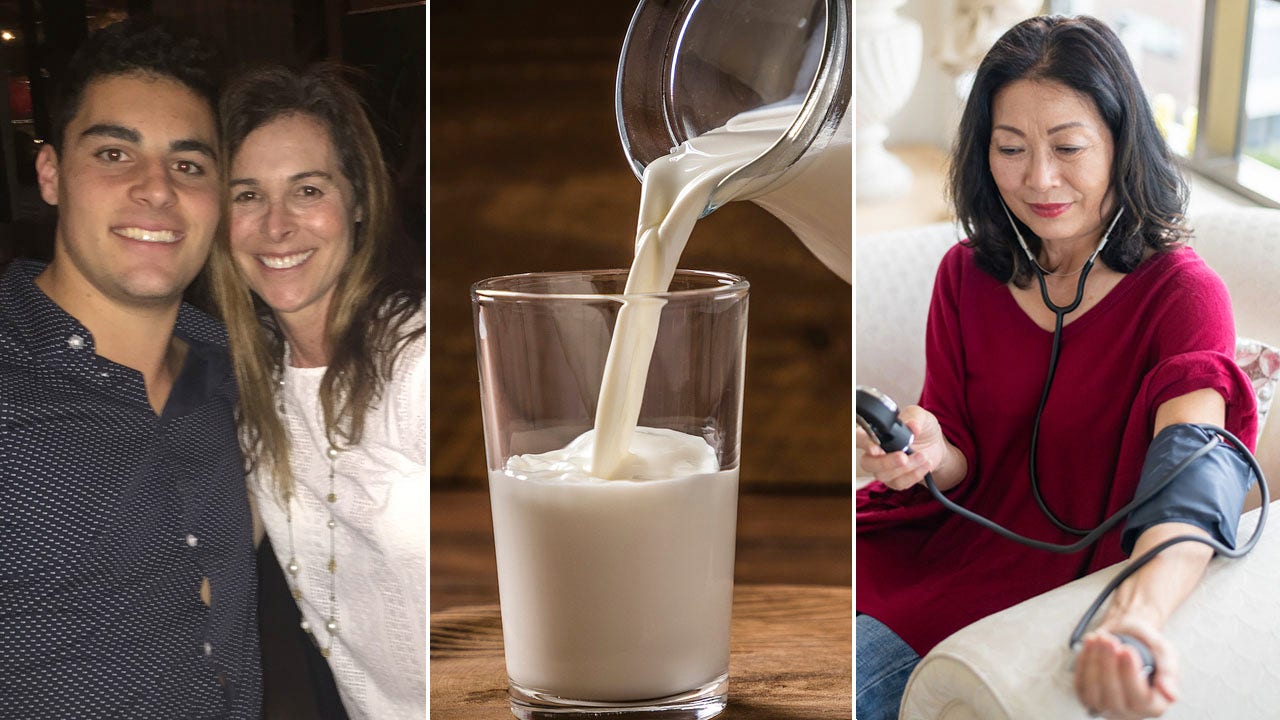
CDC issues alert over bird flu case
Fox News medical contributor Dr. Marc Siegel on what to know about bird flu and why it is important to not look directly at the solar eclipse without proper glasses
Fox News Digital publishes health pieces all week long to keep you in the know on a range of wellness topics: health care access, innovative surgeries, cancer research, mental health trends and more — plus, personal stories of people and families overcoming great obstacles.
Check out some top recent stories in Health as your weekend continues — and prep for the week ahead.
CLICK HERE TO SIGN UP FOR OUR HEALTH NEWSLETTER
These are just a few of what’s new, of course.
There are many more to see at http://www.foxnews/health.
Amid bird flu spread, is it safe to drink milk?
Bird flu fragments have been detected in retail samples of milk, leading some to wonder if it’s safe to drink.
Experts chime in on whether pasteurized milk poses any risk. Click here to get the story.
Traces of bird flu have been detected in pasteurized milk, leaving many people wondering if it’s safe to drink. (iStock)
Here are stroke prevention tips for women
One in five women between ages 55 and 75 will experience a stroke in their lifetime.
A physical medicine and rehabilitation specialist shares five tips for women to reduce their risk. Click here to get the story.

Practicing exercises that promote heart health and reduce stress can help reduce the possibility of stroke, a doctor said. (iStock)
7 tips for a whiter, brighter smile
Keeping your teeth bright and white can be a challenge, with various factors causing discoloration.
Two dental health experts revealed do’s and don’ts for a pearly-white smile. Click here to get the story.

One dentist’s rule is, “If it can stain a white T-shirt, it can stain your teeth.” (iStock)
Mother shares heartbreaking story
Robin McFadden of New York discussed with Fox News Digital the surprising factor that she believes led to her 23-year-old son’s suicide.
Here’s what she wants other parents to know. Click here to get the story.
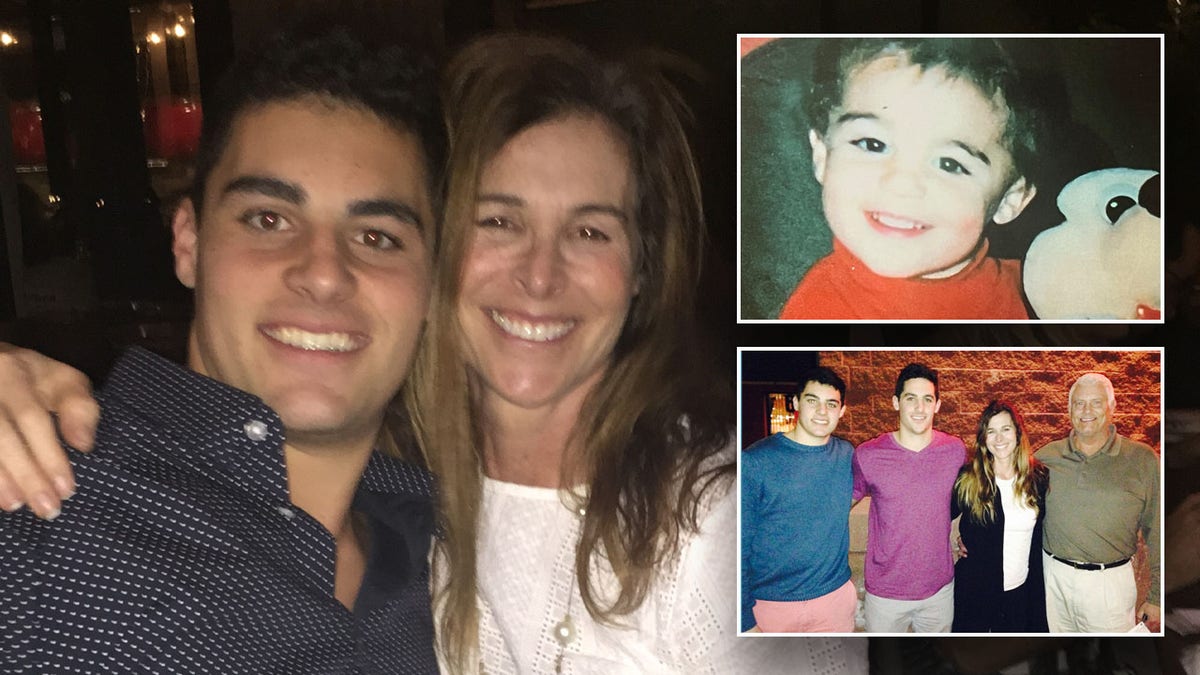
Derek McFadden, pictured at left with his mom Robin McFadden, was 23 years old when he took his own life on Aug, 17, 2018, in Tucson, Arizona. (Robin McFadden)
Patients who see female doctors may live longer, study suggests
Patients who are treated by female physicians could have an advantage in terms of longevity and recurring hospitalizations, research has found.
Both male and female doctors weighed in on the findings. Click here to get the story.

“Women tend to have a higher empathy quotient, which can impact patient care and diagnosis and treatment directly,” one doctor told Fox News Digital. (iStock)
CDC warns of fake Botox dangers
Public health officials issued an official health alert about reports of fake Botox injections that have landed some patients in the hospital.
Learn more about the symptoms and how to ensure safety with aesthetic procedures. Click here to get the story.
8 bad habits could shorten your life, doctors say
Longevity experts are warning about behaviors that cause “cellular damage” — and sharing ways to move forward.
From sun exposure to smoking, here are the eight behaviors to avoid. Click here to get the story.

The key is to make healthier choices in the areas that can be controlled — and that starts with breaking bad habits, experts say. (iStock)
Can AI help predict cancer treatment odds?
GE HealthCare has developed an artificial intelligence tool that predicts the safety and effectiveness of immunotherapy for certain cancer patients.
Here’s why doctors are calling this an “exciting time in medicine.” Click here to get the story.
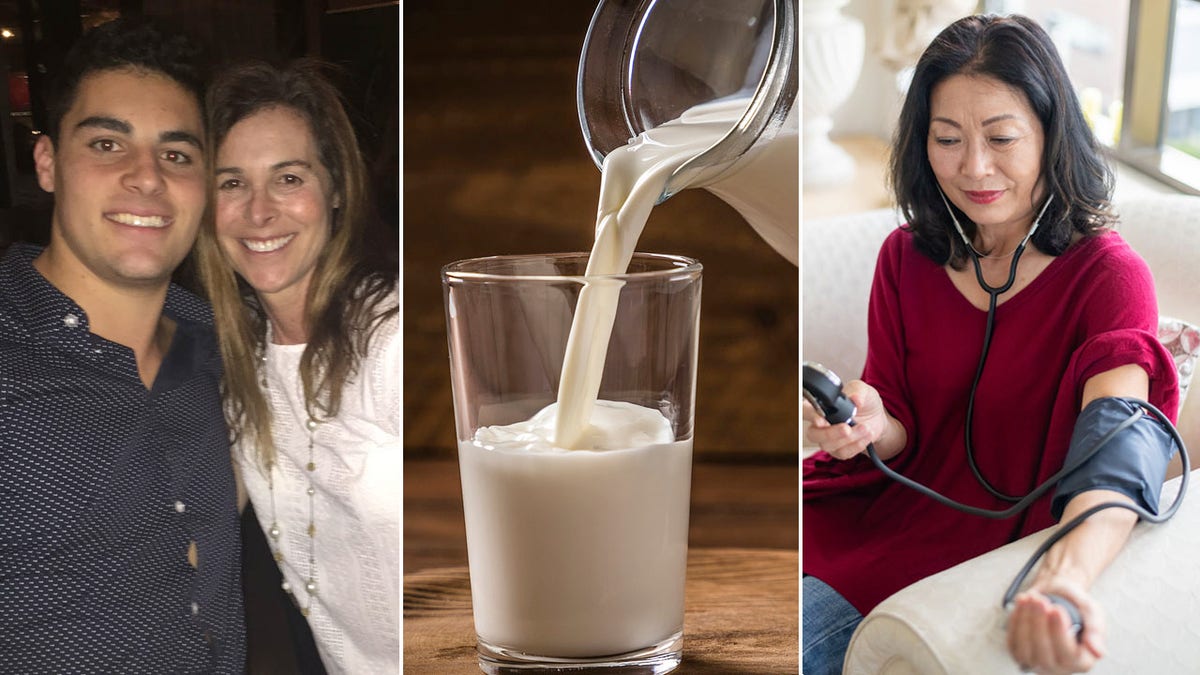
This weekend’s health roundup includes a mother’s heartbreaking story, experts’ insights on bird flu and milk, stroke prevention tips for women, and more. (Robin McFadden/iStock)
For more Health articles, visit www.foxnews.com/health.
-

 Kentucky1 week ago
Kentucky1 week agoKentucky first lady visits Fort Knox schools in honor of Month of the Military Child
-

 News1 week ago
News1 week agoIs this fictitious civil war closer to reality than we think? : Consider This from NPR
-

 World1 week ago
World1 week agoShipping firms plead for UN help amid escalating Middle East conflict
-

 Politics1 week ago
Politics1 week agoICE chief says this foreign adversary isn’t taking back its illegal immigrants
-

 Politics1 week ago
Politics1 week ago'Nothing more backwards' than US funding Ukraine border security but not our own, conservatives say
-

 News1 week ago
News1 week agoThe San Francisco Zoo will receive a pair of pandas from China
-

 World1 week ago
World1 week agoTwo Mexican mayoral contenders found dead on same day
-

 Politics1 week ago
Politics1 week agoRepublican aims to break decades long Senate election losing streak in this blue state



